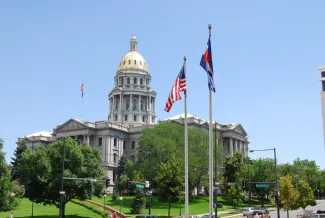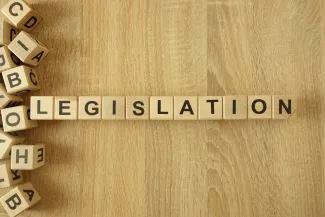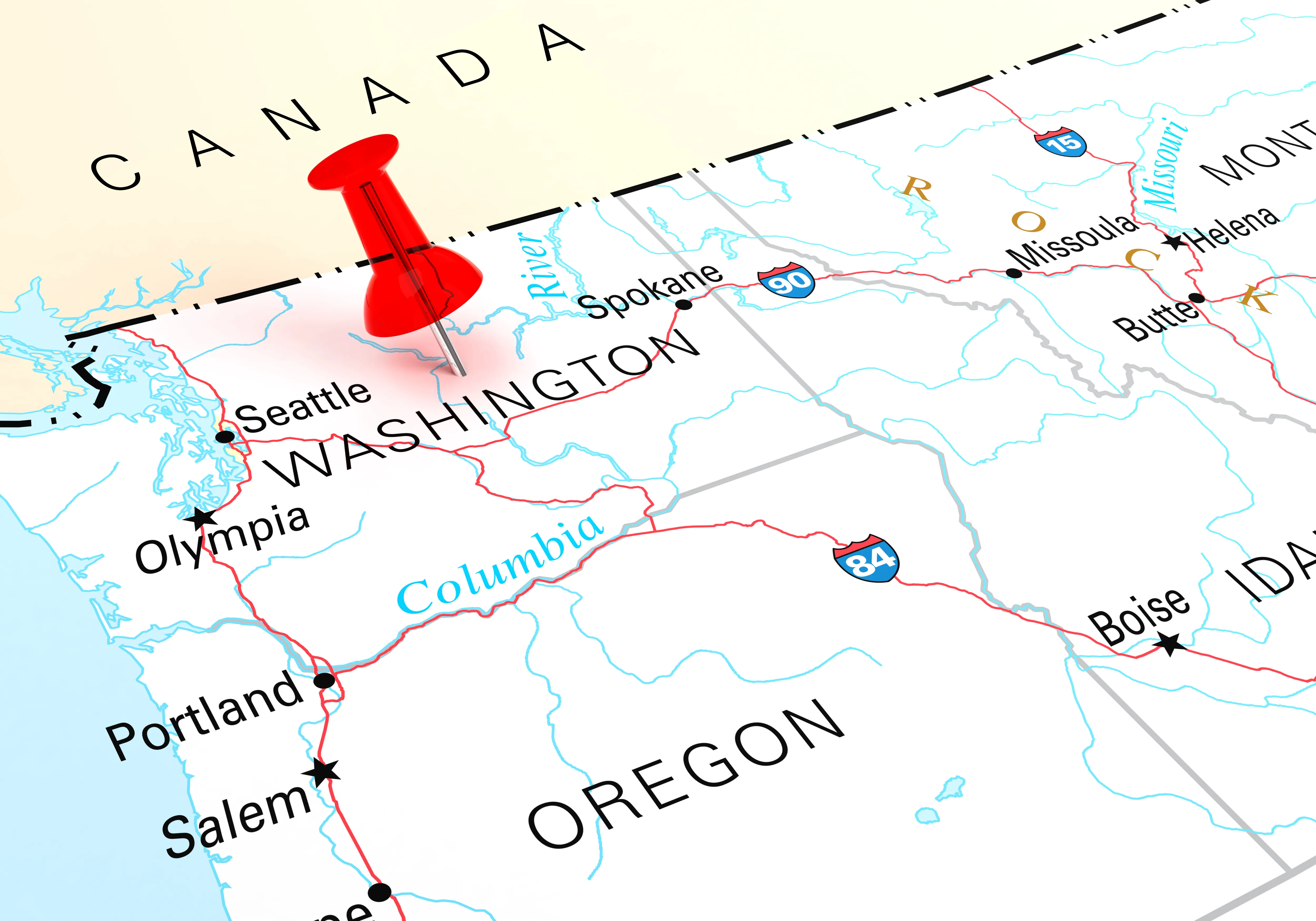
Colorado Voting Rights Act picks up nine amendments and clears first committee
A Colorado Senate committee approved a bill Tuesday intended to establish protections in the federal Voting Rights Act at the state level in Colorado after hours of testimony and several amendments.
Senator Julie Gonzales, a Denver Democrat and sponsor of Senate Bill 25-1, said the Colorado Voting Rights Act is necessary since the federal Voting Rights Act of 1965 is “under attack.” Several court decisions have weakened the federal VRA over the last decade, and there’s growing concern that President Donald Trump’s administration could try to further erode its protections.
The Colorado bill would mirror the VRA to “prohibit election practices that create disparities in participation for communities of color and other protected groups,” Gonzales said. It also includes protections for LGBTQ+ voters, expands multilingual ballot access, and requires accommodations for people with disabilities at residential facilities.

The state attorney general could enforce voting rights under the Colorado measure, so “we don’t have to rely on the federal government or federal courts,” Gonzales said. The provisions of the bill would apply to all state and municipal elections. Voters whose rights are violated under the act can take action along with civil rights groups.
The Senate State, Veterans, and Military Affairs Committee passed the bill on a 3-2 party line vote, with both Republicans, Senator Byran Pelton of Sterling and Senator Rod Pelton of Cheyenne Wells, voting against it. Senators on the committee said their communities haven’t had any complaints of discrimination that prevented someone from voting and asked why this measure was necessary given Colorado’s status as having the “gold standard” of elections.
“If you actually zoom out and look at the municipalities and the differences between the standards for statewide elections and our municipal elections, there is no requirement that municipal elections have any polling places or in-person assistance for voting,” Gonzales responded. “If a local municipality does send mail-in ballots, they’re not required to have more than one location to drop off ballots, regardless of the size of the population or geography, which is a very different practice for statewide elections.”
Gonzales said some municipalities also don’t allow same-day voter registration, with a deadline of the Friday before an election. She led an effort in 2021 to expand access to multilingual ballots for Coloradans, and sponsored a measure in 2024 to require a day of in-person voting in county jails.
Aly Belknap, executive director of Colorado Common Cause, told Colorado Newsline that anti-discrimination protections under the federal VRA must be enforced by the federal government, and the Colorado version would allow the state “to enforce our own voting rights” in state court.
“The Trump administration has signaled that they certainly will not enforce the VRA, and also are actively working to dismantle the Department of Justice,” Belknap said. “They are who enforces our federal voting rights.”

Belknap said municipalities should still run their own elections as they wish, but it’s “long overdue” that they have clear and fair standards to prevent practices that can result in unfair barriers to voter participation for certain populations. She also said there’s “no centralized information” about how municipalities run elections in Colorado.
A poll found that two-thirds of Coloradans support protecting voting rights at the state level, and 61 percent support the Colorado Voting Rights Act, while 33 percent oppose it. Eight states have passed their own versions, and two more are considering similar measures this year, too.
Heather Stauffer, advocacy director at the Colorado Municipal League, said the nonpartisan nonprofit that represents cities and towns across the state is concerned about the constitutionality of the Colorado Voting Rights Act because of its applicability to home rule municipalities. She said while municipalities are committed to ensuring all voters can have their voices heard without barriers, the Colorado Constitution says municipalities have “the full right of self government in all matters pertaining to municipal elections.”
“The Colorado Supreme Court and Court of Appeals confirmed for 113 years that municipal elections are a matter of purely local concern,” Stauffer testified before the committee Tuesday. “Even if the state had a plausible interest in combating unidentified discrimination, there is not sufficient justification to override express language of the constitution.”
Stauffer also said defending a Voting Rights Act claim could be financially “devastating” for the smallest communities with the least amount of resources. She suggested the Legislature refer a measure to the ballot if lawmakers want all elections to be conducted in November.
Gonzales said “respectfully, we disagree” on the constitutionality of the bill, because she believes that applying anti-discrimination standards to elections “is a matter of statewide concern.” She said there should not be separate sets of rules for elections that happen in the spring versus the fall.
“We believe that under this bill, local control is respected,” Gonzales said. “Jurisdictions are free to continue their current election methods and practices, but if a court finds that the voting practices of a local governing body are systematically discriminating against a set of voters, there really does need to be appropriate recourse.”
Nine amendments approved
As introduced, the bill would have created a new state office with 22 staff to run a database of election information. The committee approved an amendment that moves that responsibility to the secretary of state’s elections division, “drastically” reducing the bill’s cost in a tight budget year, Gonzales said. No new data will be collected, nor any private voter information made public — the database would compile existing information county clerks have about their elections.
“Right now, we don’t track as a state how local elections are conducted, and we need more tools to understand disparities in participation across the state,” Gonzales said. “This election database would empower the state and the public with this information.”

That amendment also clarifies that the secretary of state does not have an investigatory role, and that data for the database must only be provided if it is already available and if the secretary does not already have the data.
One amendment removed a tribe’s ability to request an in-person Voter Service and Polling Center on tribal land for up to 15 days, which Gonzales said was based on feedback from the Southern Ute Tribe and county clerks. It also removes a requirement that the secretary of state verify addresses on tribal lands for voter registration purposes.
Gonzales said initially, bill sponsors wanted to extend multilingual ballot requirements to all municipalities. An amendment she introduced changed it so that only municipalities “that exist wholly or partially” within a county already required to provide multilingual ballots under the 2021 law have to provide them as well. Currently, 20 Colorado counties need to provide Spanish ballots under that law. Gonzales said she’s still working with the Colorado Municipal League to determine the potential to exempt small counties with limited Spanish speakers.
Another amendment, supported by the Colorado Criminal Justice Reform Coalition, adds protections for eligible voters confined in jails, ensuring those who wish to vote don’t have “unfair barriers” preventing their participation. Gonzales also introduced an amendment to clarify requirements for residential facilities for people with disabilities, making it so they only have to post election information for general elections and specifying where that information be posted.
Other amendments made various language clarifications in different sections of the bill.
The legislation will go to the Senate Appropriations Committee before it is considered on the Senate floor. It will then need to go through House committee hearings and floor votes. House Assistant Majority Leader Jennifer Bacon, a Denver Democrat, and Representative Junie Joseph, a Boulder Democrat, are the House sponsors of the bill.
Colorado Newsline is part of States Newsroom, a nonprofit news network supported by grants and a coalition of donors as a 501c(3) public charity. Colorado Newsline maintains editorial independence. Contact Editor Quentin Young for questions: info@coloradonewsline.com.
















